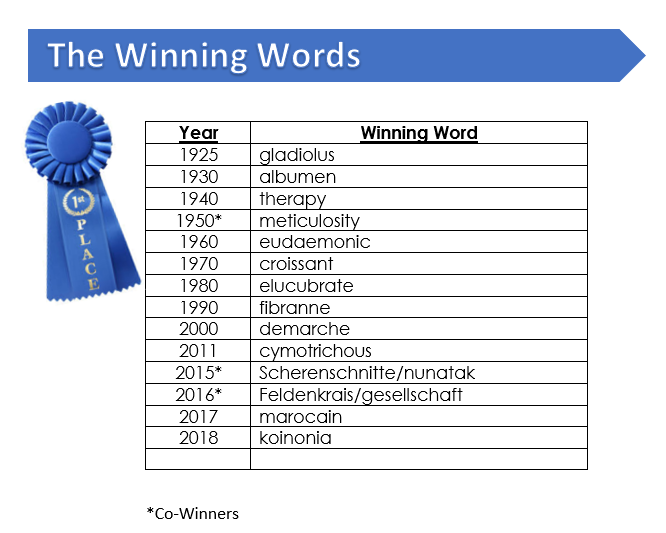While Noah Webster may have not coined the phrase Spelling Bee, he can certainly claim credit for the beginning of English-language reformation that has led to over nine decades of national spelling competitions. In 1786, Webster published The Blue-backed Speller. The purpose of this book was be used to educate children in an American form of English spelling and pronunciation. Along with Webster’s Dictionary, these books were widely used as curriculum for elementary students for decades. Nearly 100 million copies of The Blue-back Speller have been printed to date.
As early as 1808, there is evidence of spelling competitions referred to as a spelling match or spell-downs. Around 1850, the phrase Spelling Bee became the lasting name for referring to spelling contests. The word bee, describing a group of people socially gathering for a single purpose, was common during this time when describing activities like quilting, spinning, husking, apple picking, sewing and barn raising.
What began as a state level spelling bee, sponsored by a Louisville, Kentucky newspaper, The Courier-Journal, quickly grew to a national spelling competition. Backed by John J. Tigert, the U.S. Bureau of Education Commissioner, and sponsored by The Courier-Journal, in 1925, the first ever National Level Spell Bee was established.
The first National Spelling Bee, conducted during the summer of 1925, in Washington, D.C. included nine finalist who traveled to the national capital to meet the President and compete. The contest took less than two hours, with the winner, Frank Neuhauser, receiving the prize of $500 in gold pieces and a parade held in his honor in his home state of Kentucky.
After 16 years of sponsoring the event, in 1941, the Scripps Howard News Service acquired sponsorship and changed the name to Scripps Howard Nation Spelling Bee. The Nation Spelling Bee has occurred every year since 1925, with the exception of three years due to World War ll. While the Nation Spelling Bee received its humble beginning in 1925, the competition has kept up with the ever-increasing demands of providing a challenging and rigorous competition. Over the years, the words have increased in difficulty and the competition has added new rules to further the complexity and a deeper understanding of spelling, vocabulary, learning concepts and correct English usage.
In 2018, 515 students traveled to National Harbor, Maryland to compete in a three-day competition, which included strict time limits, oral preliminary rounds and a written test, for the title of National Spelling Bee Champion. While the difficulty level of the competition has increased, so has the popularity and value of the prizes. Competitors now include students from the all-50 states in the U.S., as well as students from nine additional countries, U.S. Territories, and International Military Bases.
The 2019 winner will take home $42,500 in cash, a complete reference library, travel accommodations while appearing on television programs and of course, and engraved trophy. In the age of spell check and advanced technology, the National Spelling Bee is going strong and certainly keeping up with the times.
Want to learn more about the National Spelling Bee?
Check out these interesting sites:
Sources:
https://www.businessinsider.com/winning-words-spelling-bee
https://www.bustle.com/p/what-prize-do-spelling-bee-winners-get-2018s-champion-gets-a-big-cash-reward-so-much-more-9178598https://www.nbcnews.com/news/us-news/national-spelling-bee-too-easy-sponsors-say-changing-rules-n560256
https://en.wikipedia.org/wiki/Spelling_bee
https://portal.clubrunner.ca/5595/stories/reasons-to-encourage-your-child-to-join-spelling-bees
https://www.merriam-webster.com/words-at-play/word-history-spell







